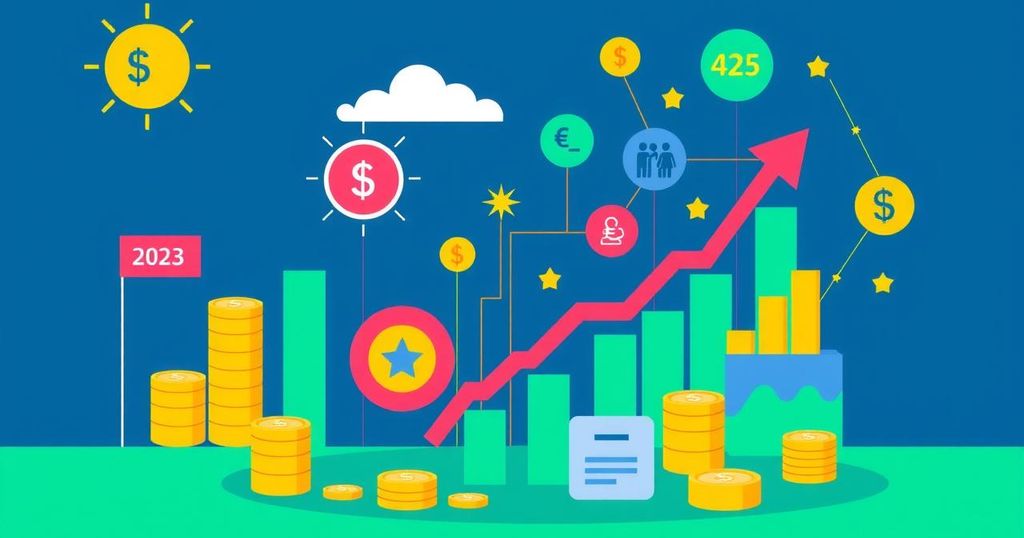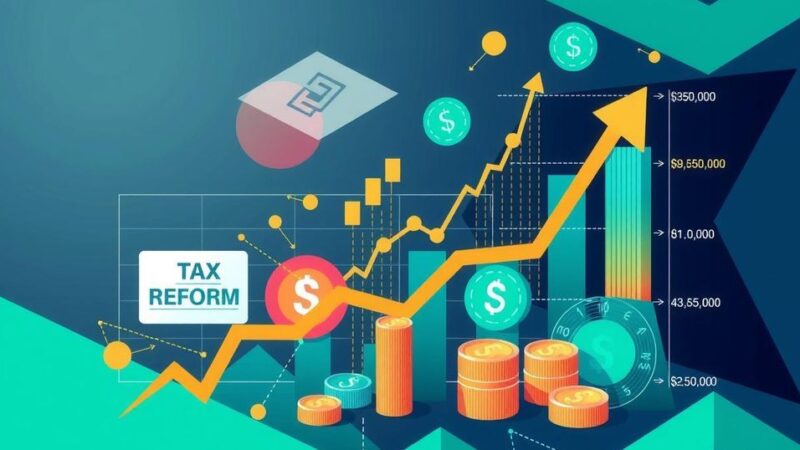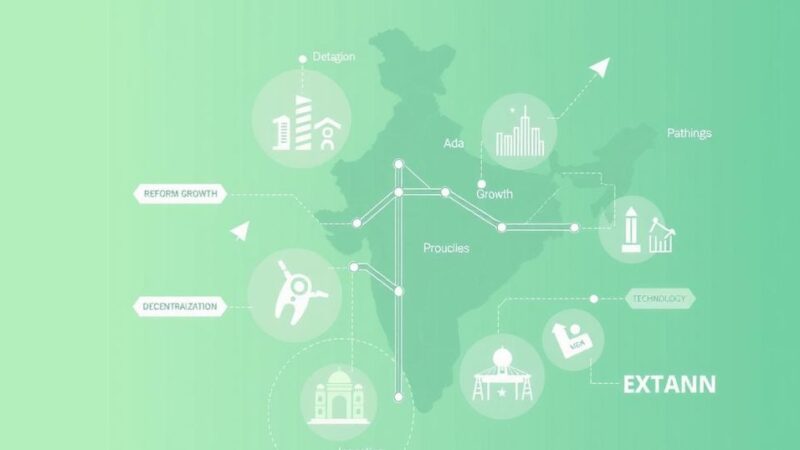Ghana’s 2025 budget, presented by President Mahama, focuses on economic revival, abolishing the betting tax, COVID-19 levy, and several other taxes. A total of GHS 290 billion ($19 billion) is allocated, prioritizing infrastructure and health, alongside education initiatives. The government plans to streamline operations and reintroduce road tolls, aiming for a projected growth rate of 4.4%.
In the 2025 fiscal budget presentation by Ghana’s President John Mahama, significant economic reforms have been introduced, including the abolition of several taxes. The finance minister, Dr. Casiel Ato Forson, emphasized that this budget aims to rejuvenate the economy, which he described as a “budget of growth and prosperity.”
Total budgetary allocation for 2025 stands at GHS 290 billion (approximately $19 billion). Key tax eliminations include a 10% betting tax, a 1% COVID-19 levy, and VAT on motor vehicle insurance. Additionally, the government removed the electronic transaction levy, which was unpopular during its introduction under the prior administration.
The budget highlights major financial commitments: GHS 13.85 billion ($894 million) is designated for infrastructure projects, while GHS 9.9 billion ($641 million) is allocated for the National Health Insurance Scheme, aimed at enhancing healthcare accessibility. Furthermore, the free senior high school policy and women’s development initiatives will receive significant funding.
Notable allocations include GHS 499.8 million ($32.2 million) for free tuition fees for new public tertiary students and GHS 292.4 million ($19 million) for distributing free sanitary pads in schools. Various assistance programs such as school feeding initiatives, teacher allowances, and road maintenance are also part of the budget, ensuring comprehensive support across sectors.
The reintroduction of road tolls aims to generate additional revenue to complement the electronic transaction levy that replaced them in 2021. This measure is expected to be implemented through advanced technology for efficiency and transparency.
The government intends to minimize operational costs with a streamlined cabinet, reducing the number of ministers and thereby saving taxpayer money. The finance minister indicated that they are cutting out previous government policies which included the one district, one factory initiative.
The projected economic growth rate for 2025 is set at 4.4%, building on last year’s performance, which showed growth recovering from a low of 2.9% in 2023. With various macroeconomic strategies, including a proposed 24-hour economy policy, the government aims to enhance employment opportunities and stimulate economic recovery.
In summary, the key highlights from Ghana’s 2025 budget reflect a significant shift towards economic recovery through tax abolition, investment in infrastructure, and strategic budget allocations aimed at supporting education and health sectors. Reintroducing road tolls and maintaining a lean government are cost-cutting measures to further improve the economy. The expected growth of 4.4% indicates a positive outlook based on the current administration’s fiscal strategies.
Original Source: www.bbc.com






